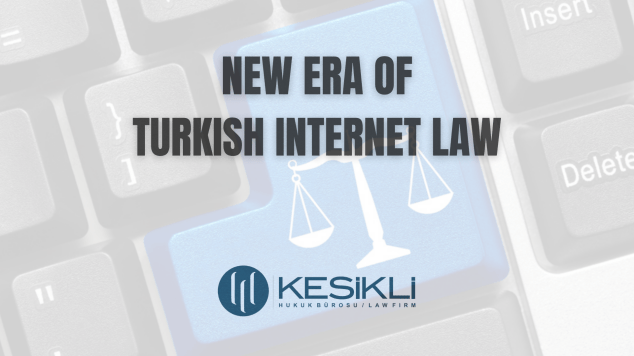Alert for the Tech Giants: Digital Markets Act Proposal
1. Introduction
On 15.12.2020, the Digital Markets Act Proposal (“the Proposed Regulation”) was submitted by the European Commission to the Council of the European Union. The Proposed Regulation aims to prevent abuse of dominance by large digital platforms, the so called “gatekeepers” as mentioned in the Proposed Regulation. The Proposed Regulation intends to establish a fair level of competition for the digital market, and to enable new innovators and start-ups to have chance to enter the digital market, which would also potentially result with reach to a wider choice of products and competitive prices for the respective customers.
2. Target Sectors
The Proposed Regulation targets eight sectors called as “core platform services”:
i. online intermediation services (ex: Google Play, App Store)
ii. online search engines (ex: Google Search)
iii. social networking (ex: Facebook)
iv. video sharing platform services (ex: YouTube)
v. number-independent interpersonal electronic communication services (ex: Whatsapp, Gmail)
vi. operating systems (ex: Google Android)
vii. cloud services
viii. advertising services
3. Subjects of the Obligations
The subjects of the obligations brought by the Proposed Regulation are the gatekeepers. They have the power to control the market with strong network effects, their intermediary role, their ability to access and collect large amounts of data. In Article 3, the Proposed Regulation lists the conditions to be considered as gatekeepers as follows:
i. have a significant impact on the internal market: The undertaking to which it belongs achieves an annual EEA turnover equal to or above EUR 6.5 billion in the last three financial years, or where the average market capitalization or the equivalent fair market value of the undertaking to which it belongs amounted to at least EUR 65 billion in the last financial year, and it provides a core platform service in at least three Member States.
ii. operate one or more important gateways to customers: It provides a core platform service that has more than 45 million monthly active end users established or located in the Union and more than 10.000 yearly active business users established in the Union in the last financial year. (monthly active end users shall refer to the average number of monthly active end users throughout the largest part of the last financial year)
iii. enjoy or are expected to enjoy an entrenched and durable position in their operations: thresholds in point (ii) above were met in each of the last three financial years.
4. Obligations
The main obligations imposed on the gatekeepers with the Proposed Regulation listed under Article 5 also called as “blacklisted obligations” and Article 6 also called\ as “susceptible to be further specified obligations”. Two other obligations are the gatekeepers are specified under Article 12 and Article 13 respectively.
Blacklisted Obligations (Article 5):
i. to refrain from combining personal data sourced from different sources
ii. to allow business users to offer end-users the same services through third-party intermediation services at different conditions than those offered through the gatekeeper intermediation
iii. to allow business users to promote offers and conclude contracts with end users* regardless of whether they use the gatekeepers' core platform services and allow end users* to access and use content without using the gatekeeper's core platform services
iv. to refrain from preventing or restricting business users from raising issues with relevant public authority related to practices of gatekeepers
v. to refrain from requiring business users to use, offer or interoperate with an identification service of the gatekeeper in the context of services offered by the business users using the core platform services of that gatekeeper (also known as bundling)
vi. to refrain from requiring business users or end users* to subscribe to or register with any other core platform services as a condition to access, sign up or register to any of their core platform services (also known as tying)
vii. to provide advertisers and publishers with information concerning the price paid by the advertiser and publisher and remuneration paid to the publishers
Susceptible To Be Further Specified Obligations (Article 6):
i. to refrain from using any data not publicly available by gatekeepers
ii. to allow, more broadly, end users to uninstall any pre-installed software applications
iii. to allow, more broadly, the use of third-party software applications and systems
iv. to implement interoperability
v. to refrain from treating gatekeeper or allied products and services more favorably in ranking and apply fair and non-discriminatory access conditions to such ranking
vi. to refrain from technically restricting the ability of end users*1 to switch between and subscribe to different software applications and services to be accessed using the operating system of the gatekeeper
vii. to provide advertisers and publishers, free of charge, with access to the performance measuring tools of the gatekeeper and related information
viii. to provide business users with continuous and real-time data portability
ix. to provide third-party providers of online search engines with access on fair and non-discriminatory access terms to ranking, query, click and view data concerning search generated by end-users on online search engines of the gatekeeper;
x. to apply fair and non-discriminatory general fair and non-discriminatory access conditions of access for business users to its software application store.
Other Obligations (Article 12 & Article 13)
i. to inform the Commission about any intended concentration involving another provider of a core platform service or any other services provided in the digital sector
ii. to submit (on an annual basis) to the Commission an independently audited description of any techniques deployed for profiling consumers that the gatekeeper applies to or across its core platform services
5. Sanctions
The most dramatic sanction is stated in Article 26 of the Proposed Regulation. According to the Article, if the European Commission adopts a non-compliance decision about failing to fulfill the obligations or measures stated in the Proposed Regulation, fines not exceeding 10% of its total turnover in the preceding financial year may be imposed on a gatekeeper.
6. Conclusion
In conclusion, the Digital Markets Act sets forth obligations for large digital companies to maintain fair competition in the digital market. It aims to prevent big tech companies’ abuse of dominance and encourages the new companies to enter into the market to offer wider choices for consumer benefit. While the Digital Markets Act establishes binding rules only for member states of the European Union, as an echo of the Brussels Effect, it would also have a binding effect over the global platforms. These rules may also serve as a. model setting the global standards for digital platforms in the forthcoming years.
@Kesikli Law Firm
Let's Get Connected!



